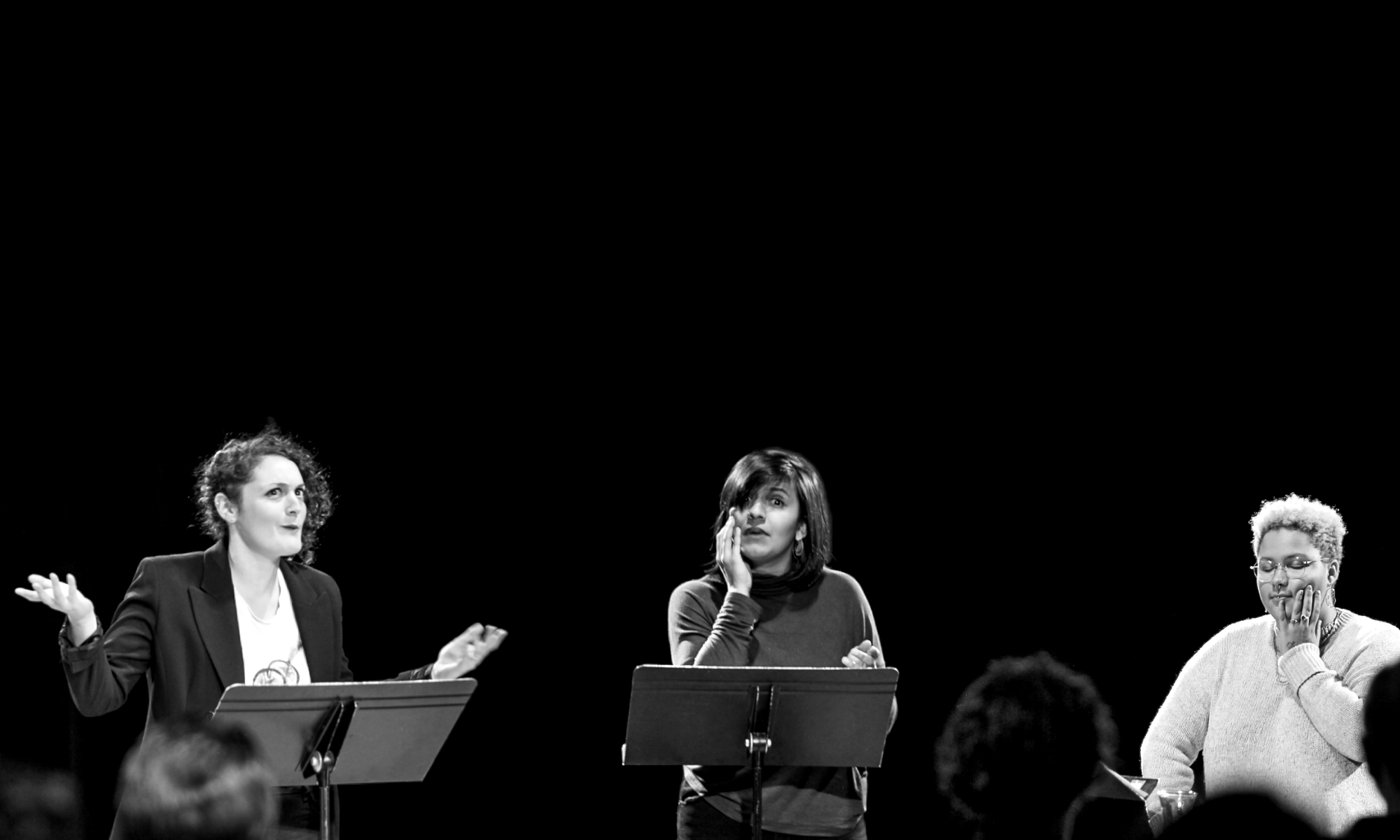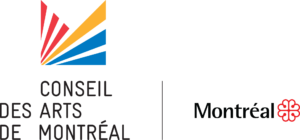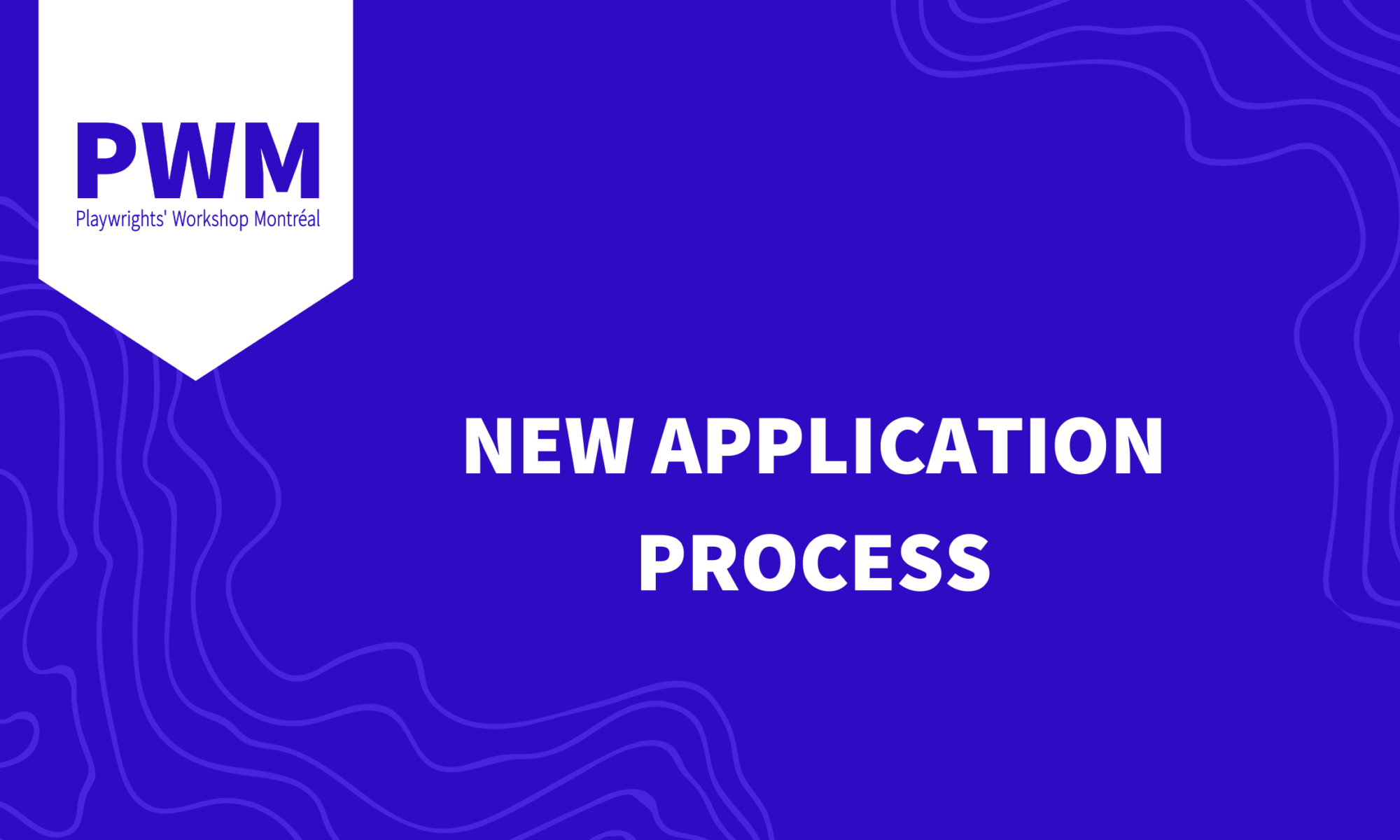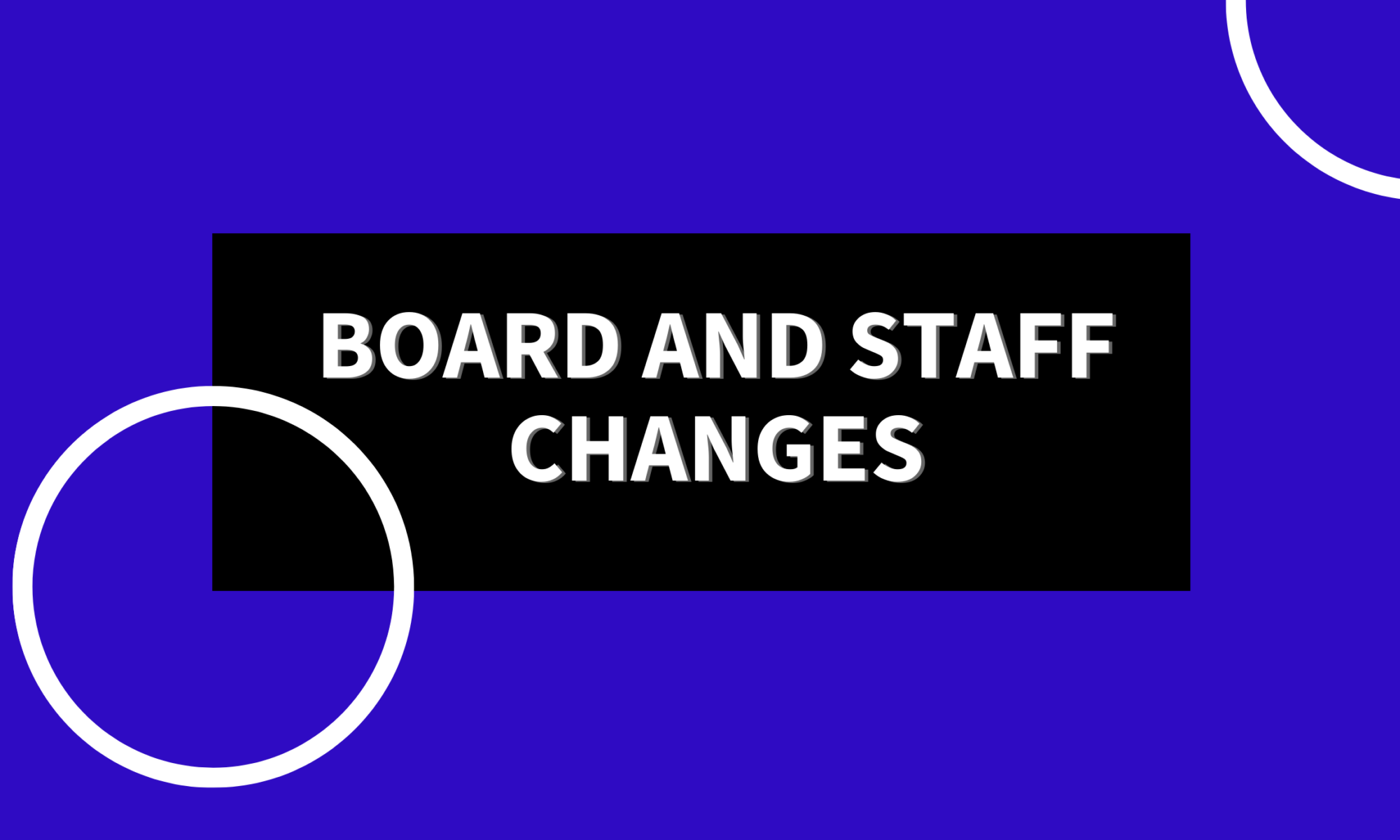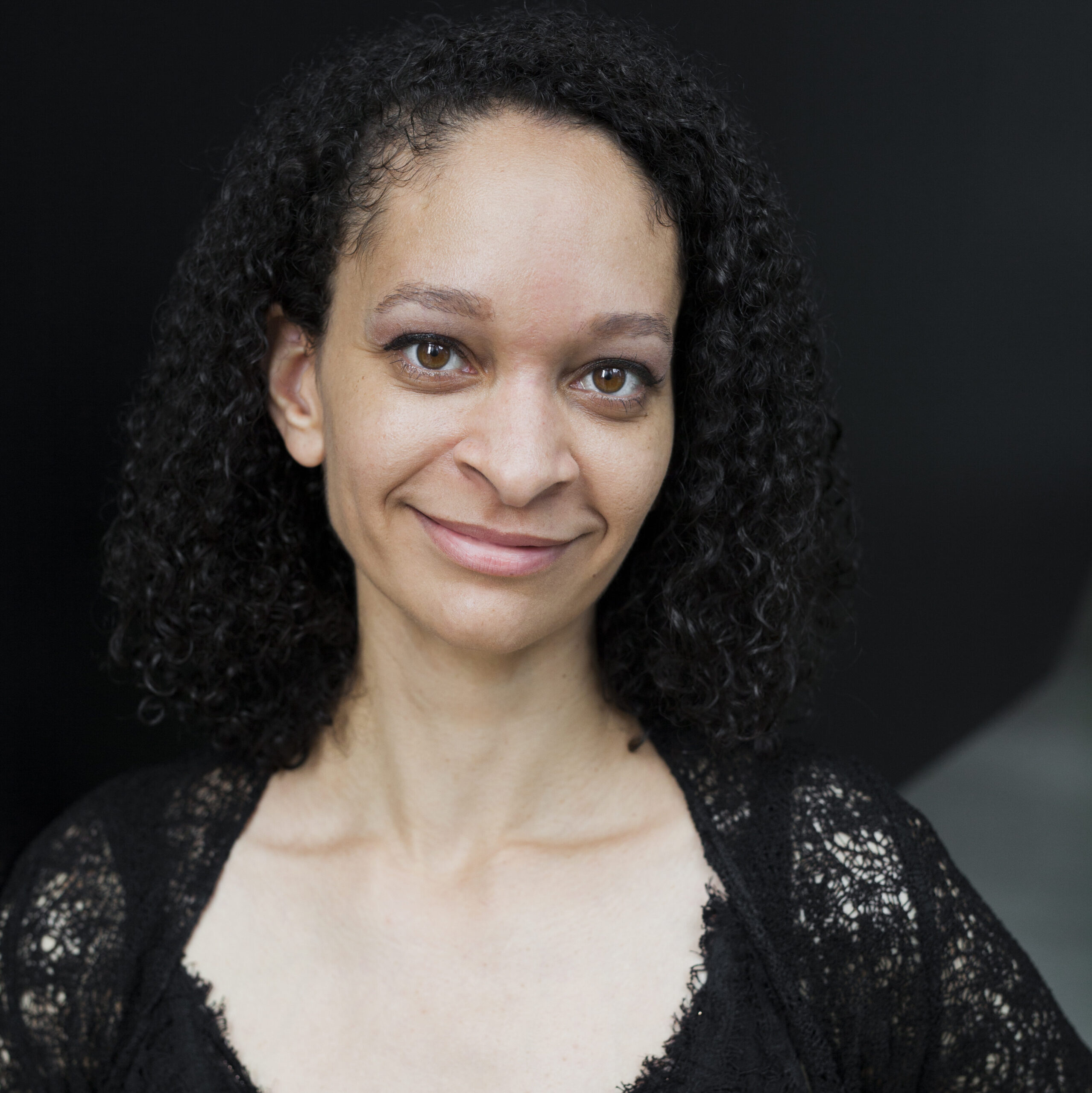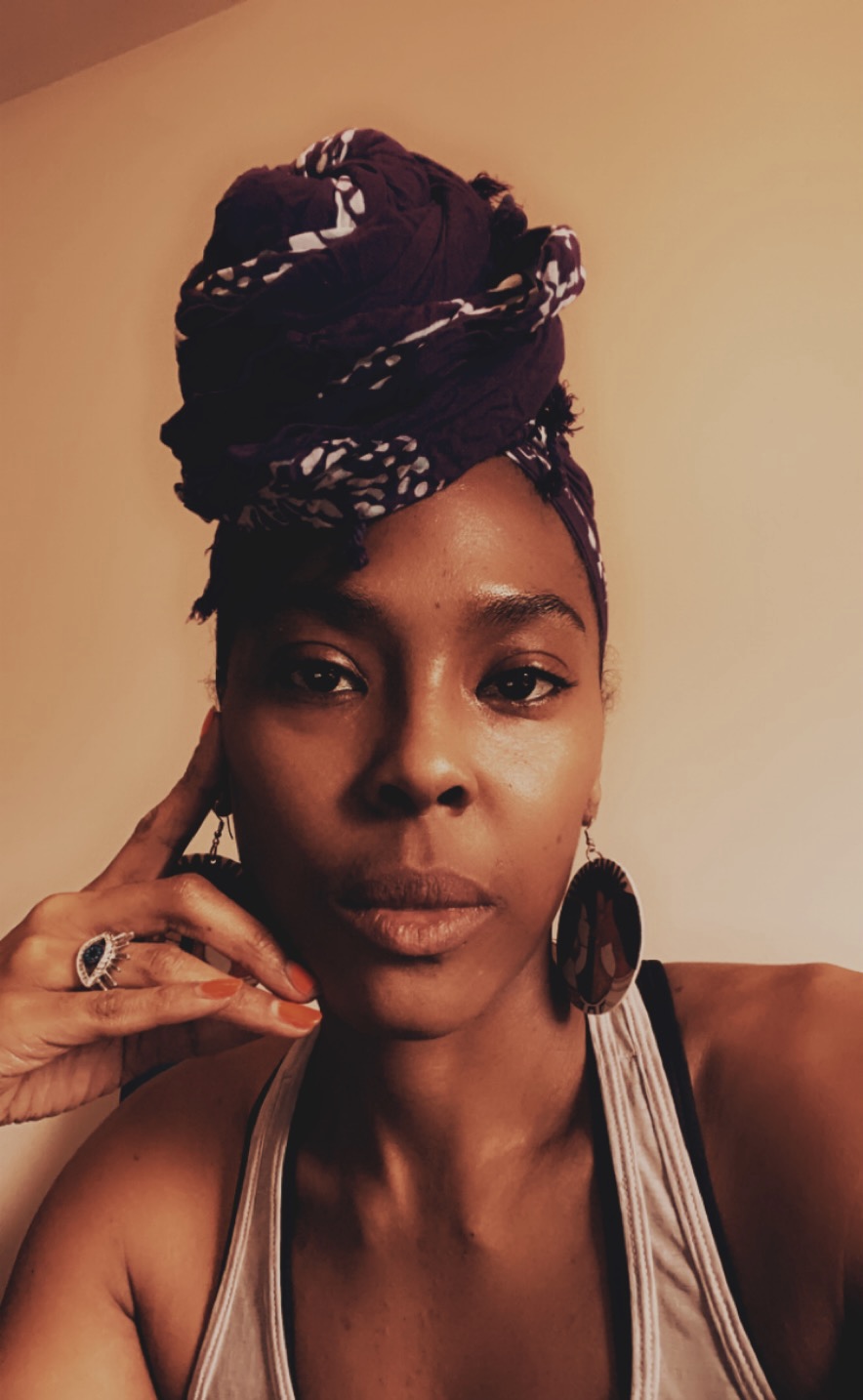An overview of our process so far
Over the past several years, Playwrights’ Workshop Montréal (PWM) has been researching ways to create more accessible and inclusive spaces. In 2019, we hired Kéroul to conduct an accessibility audit of our physical spaces, and they gave PWM a report with many recommendations. As tenants in the building, we have been limited in what changes we can make to the physical spaces, and so we shifted our focus to areas where we have more immediate agency to make changes: digital and cultural accessibility. In 2020-2021, PWM worked with Accessibility and Inclusion Consultant Clary Chambers to find tools, resources and approaches to creating more inclusive and accessible digital and cultural spaces. As Vice President of PWM’s Conseil d'administration, Corrina Hodgson, describes in the article below, in the winter and spring of 2021 we invited six D/deaf and disabled artists from the community to speak with us about how PWM could become more accessible and more inclusive.
FINDING THE LOVE: PWM’S ACCESSIBILITY COMMITTEE 2020-2021
By Corrina Hodgson
CHALLENGING ACCESSIBILITY AUDITS
Like many theatre organizations in Montréal, PWM is located in an inaccessible building that it leases. Unsurprisingly, it scored low on an accessibility audit executed two years ago.
While the results of the audit were factually correct, they did not sit right with me. I am a disabled playwright and I have served as an artist member on PWM’s Board of Directors for the past four years. The audit did not capture the culture of the organization that I know.
Enter Clary Chambers.
We decided to move beyond an accessibility audit and expand our definition of accessibility to include Cultural and Digital Accessibility. This definition of accessibility came from a workshop that I’d attended in 2019 by Spark Clarity run by Clary Chambers. PWM hired Clary Chambers to train staff members and assist me with the first meeting of the Accessibility Committee.
One core learning acquired from Clary this time around was the idea that accessibility begins at the point of contact. It’s not enough to have an accessible space or event. We must make our communications accessible. This impacted how we communicated with the members of the Accessibility Committee about our meetings. Every email included an ASL video, and a separate spoken video with closed captions. This allowed our emails to be read, listened to, listened to and read at the same time, or watched. Beyond communicating the content of the email, this approach communicated that everyone’s welcome and that everyone’s accessibility needs are valid.
THE MEETINGS
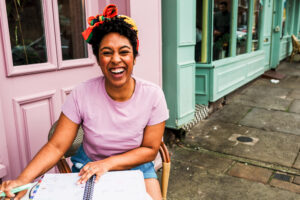
“ . . . [W]e are not struggling because there’s something wrong with us; we are struggling because the systems that were set in place were for a specific group of people, and they’ve never been changed.” — Clary Chambers
For six meetings over six months — 12 hours total — artists Cherie Pyne, Violette Kay, Willow Cioppa, Penina Simon, Sage Lovell, Lois Brown, and I (Corrie Hodgson) — met with PWM staff in attendance, including staff participant Heather Eaton to discuss all things accessibility and how disability, chronic pain, and chronic illness impacts our life and art, both before and during COVID (acknowledging that post-COVID has yet to exist.) We spoke of our interactions with PWM, discussed how PWM could be an ally, and future dreamed.
PWM and I urged participants to inform us of any accommodations that would make meetings more accessible for them prior to or during meetings. This seems simple, but isn’t. As one participant pointed out, we don’t always know what we need, we just know this isn’t it. And another one said that we’re so used to being asked for what we need, but not for what makes things easier — and that’s a big difference.
Some accommodations we made were that we had ASL-English interpreters and encouraged everyone to make use of chat features. Speakers identified themselves prior to speaking. Participants were welcome to turn cameras off or keep them off for the entire meeting if that felt right. They were welcome to fidget, stand up and stretch, or attend while lying in bed. Nothing was interpreted as disinterest or “unprofessional.” Instead, we welcomed all bodies in all states of being, and all modes of communication were treated equally.
This approach to meetings sent the message that you do not have to fit yourself to the meeting. Instead, the meetings were made to fit our participants. Their form was malleable so that the humans didn’t have to be.
This malleability of structure is something the committee agreed was a shared value as disabled artists. Many of the group members wondered if PWM could extend this flexible approach to other aspects of its work. For example, could PWM livestream their events for those of us who are physically incapacitated but would like to attend? Could PWM’s programs be made accessible remotely? And, of course, the ultimate malleability extends to deadlines. Many of us are writing on *Crip Time and therefore require flexibility with deadlines. In a field that defines “professionalism” as meeting deadlines (among other things), could PWM become a leader in challenging this definition and explore flexible deadlines with disabled playwrights? Could they fight for longer development time for the creation of new works? As Violette Kay pointed out, we just watched extensions be handed out universally and no one had to ask, so why do we think it’s so impossible to grant them to individual artists?
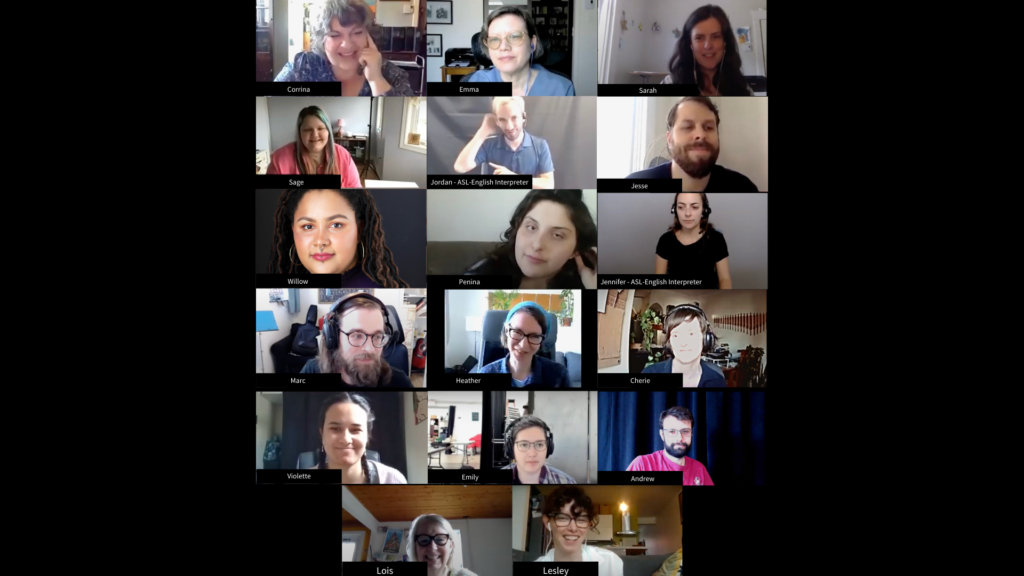
HOW COVID IMPACTED OUR ART
A common experience amongst participants was a surge in survival employment during the pandemic. While most of our peers suffered financial losses, many of us were busier than ever. After all, we are a population that lives in quasi-lockdown without a pandemic, so the businesses we have developed — from music lessons and podcasting to consulting and technical writing — are well suited to COVID circumstances.
While suddenly earning more than ever before, and doing so in a time when many were struggling, was fortunate, it came at the expense of our creativity. Many of us felt obligated to take on as much paid work as possible, knowing that when the pandemic was over, we would once again be relegated to the sidelines and our earnings would return to pre-pandemic levels. The result amongst members was a sense of pushing past limits and not having anything left to give to creative projects. And there was a mounting guilt and panic about those projects, some of which had deadlines looming and dramaturges waiting for new drafts.
Sage Lovell spoke about how COVID had reduced opportunities for Deaf artists while accessibility measures increased options for Deaf spectators. This led to questions of how PWM could attract and support Deaf creators. Sage also reminded us of the very real fatigue brought on by digital spaces — something that everyone has experienced by this point in the pandemic.
Our sense of being overwhelmed by our side gigs and day jobs happened right when we were the most disconnected from our creative communities. We didn’t get to finish work and head to the theatre to gather in person with colleagues for a reading or show. We no longer had informal hang outs in local cafés to drink coffee and write. Many members longed for some sort of casual, drop-in group on a digital platform where we could congregate and support one another while writing. Again, flexibility in this vision played a key role, so that writers could come and go as needed.
Moreover, many of us live in small abodes. Penina Simon bemoaned the loss of her beloved cafés as that’s where she was used to writing. Similarly, Willow Cioppa spoke to the difficulty of working, eating, doing therapy and then trying to be creative all at the same table in their apartment.
POST-PANDEMIC ACCESSIBILITY
For many of us, defining a post-pandemic world is difficult. We struggle to imagine a time of safety after these past two years. Merely imagining physical interactions with friends — never mind strangers — induces anxiety. Willow Cioppa foregrounded the important role that consent will play in our post-pandemic world, as we will all be at different comfort levels with physical touch, with hugs, and it will all have to be negotiated.
When committee members were asked if they felt safe attending PWM as an artist or spectator in the future, we all agreed that we did. We know that PWM as an organization is thorough and careful, that safety measures will be followed.
But then someone raised the question of how would we get to PWM? How many of us felt safe on the metro? On busses? Not one of us.
And Violette Kay raised a larger, more important question, addressing in-person endurance. The thought of entering an in-person five-day workshop seemed, well, exhausting.
It’s not just a question of if we feel safe.
It’s a question of if we are ready.
Or maybe when.
And what we do until then.
PWM has striven to be a safe space and creative hub prior to and during the pandemic. We would love to see it maintain a digital presence both during and after the pandemic. That presence would bring safety and creativity to its community on a consistent basis. While we have been overwhelmed and lacking in focus throughout the pandemic, we have fought and continue to fight to maintain an artistic practice. Knowing that we can rely on PWM to remind us that we are artists first, that our art matters, and that our voices have important things to say brings a lived experience to the slogan “Access is Love.”
*Crip Time is explained by Alison Kafer in her book, Feminist, Queer, Crip as “Rather than bend disabled bodies and minds to meet the clock, crip time bends the clock to meet disabled bodies and minds.”
ABOUT CORRINA HODGSON

Corrina (she/her) is a Queer and disabled playwright and dramaturg with a passion for nontraditional story structure. Raised in Toronto, Corrina had the good fortune of being on writing units at Buddies in Bad Times Theatre and Nightwood Theatre before obtaining her MFA in Creative Writing at UBC. She has been playwright in residence at the University of Lethbridge and her work has been produced across Canada and in the US, as well as on CBC Radio One. She is the co-creator and Artistic Producer of The Rose Festival, Montreal’s multidisciplinary festival for Queer Creators.
OUR COMMITMENTS
Below is a list of actions PWM has taken since the Accessibility Committee conversations, as well as actions we are committed to taking in the coming year and beyond. These actions are informed by multiple sources, including those already mentioned, as well as PWM’s staff and board. We are learning more each week, and welcome feedback from community members so that we may continue to render our practices and spaces increasingly inclusive. To ask questions or offer feedback, please email: accessibility@playwrights.ca
We acknowledge that PWM is evolving as a company, our dramaturgical thinking is dynamic, and we commit to the actions below being dynamic as well.
| Topic | Action | Timeline |
| Communications | Include videos of how to get to PWM’s location and how to get to our office/studio once inside the building | completed |
| Communications | Offer content advisories for live events, and contact person and their contact information to reach out to for more information | ongoing |
| Communications | Examine user experience to make accessibility information very easy to find on PWM’s website | ongoing |
| Communications | Add alt-text & image descriptions to the website and all social media | in progress |
| Communications | Use a maximum of 5 words of text in all graphics | ongoing |
| Communications | Offer general and technical guidance and assistance for applications to PWM programs/job openings | ongoing |
| Communications | Situate accessibility information and access needs requests at the top of blog articles or event pages on the website | in progress |
| Communications | Add a video tutorial to our Accessibility webpage on how to use the accessibility features on PWM’s website | completed |
| Communications | Add captioned video invitations to events and programming communications | in progress |
| Communications | Add voice-over to videos on our Accessibility webpage on how to get to PWM | in progress |
| Communications | Add photos of the PWM studio with people to the Accessibility webpage | complete |
| Communications | Offer diverse modes of communication for applications at PWM | ongoing |
| Communications | Use a relay service for telephone communications | ongoing |
| Programmes | Provide support to artists as they adapt to digital and hybrid mediums of creation and dissemination through Digital Dramaturgy Clinics | completed, ongoing |
| Programmes | Check-in with artists about comfort, safety and preferred work conditions during the process of organizing development workshops | completed, ongoing |
| Programmes | Add drop-in hours to the remote Writers’ Room to accommodate different scheduling needs | completed, and on hiatus |
| Programmes | Communicate about the Writers’ Room through email and a shared Google calendar rather than Facebook | completed, and on hiatus |
| Programmes | Hire an artist with lived experience with disability/chronic pain to co-facilitate the Writers’ Room | completed, and on hiatus |
| Programmes | Hire and collaborate with artists from the d/Deaf community on their artistic projects | ongoing |
| Programmes | Send tech gear to artists that need it for participation in programming | completed, ongoing |
| Programmes | Offer hybrid, in-person and remote workshops | completed, ongoing |
| Programmes | Offer technical orientation workshops and/or video tutorials for different digital platforms for artists prior to activities | ongoing |
| Public Events | Implement and communicate about accessibility for events | ongoing |
| Public Events | Publicize PWM’s current practices and structures in place for events | in progress |
| Public Events | Designate a PWM staff member as an Accessibility Liaision, available to respond to questions and requests | completed |
| Public Events | Hire ASL-English interpreters for live readings | ongoing to the best of our ability |
| Public Events | Project script during public events | ongoing on a case-by-case basis |
| Public Events | Offer livestream options for public events | ongoing on a case-by-case basis |
| Staff Training | Two PWM staff members begin learning ASL | ongoing |
| Staff Training | Begin staff training on working with neurodiverse artists, welcoming d/Deaf, disabled and/or neurodiverse members of the public to cultural spaces | in 2023 |
| Working with Stakeholders | Include accessibility support requests in all funding request budgets | in progress |
| Working with Stakeholders | Continue to advocate to funding bodies for more support and longer and more flexible creation & development time in new theatre creation | ongoing |
| Working with Stakeholders | Work with property management to install non-slip and contrasting colour bands on the stairs inside the entrance of the building | in progress |
| Working with Stakeholders | Work with property management to apply to the City of Montreal for a reserved parking spot directly in front of the building entrance at 7250 Clark | in progress – pending City of Montreal |
